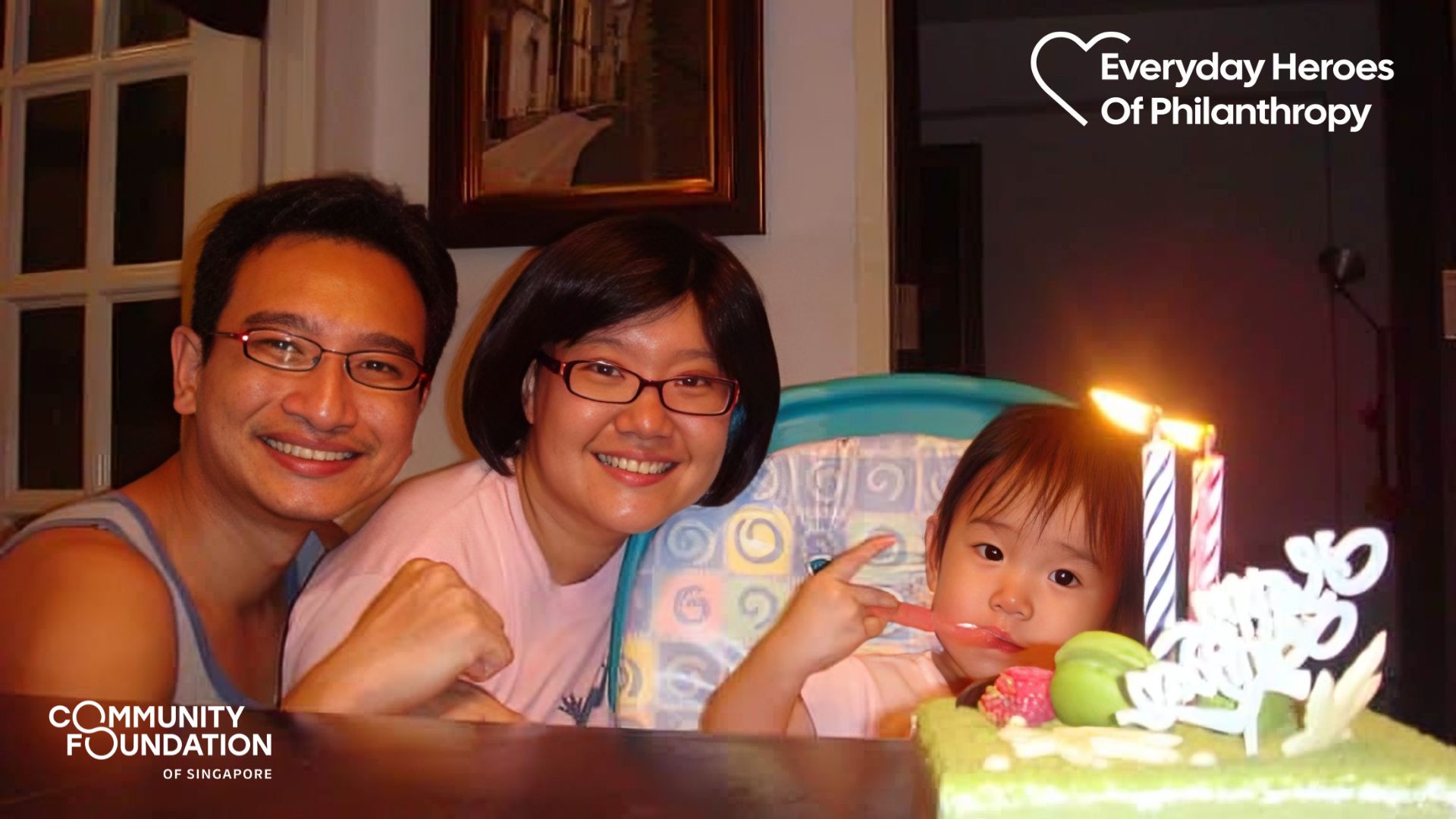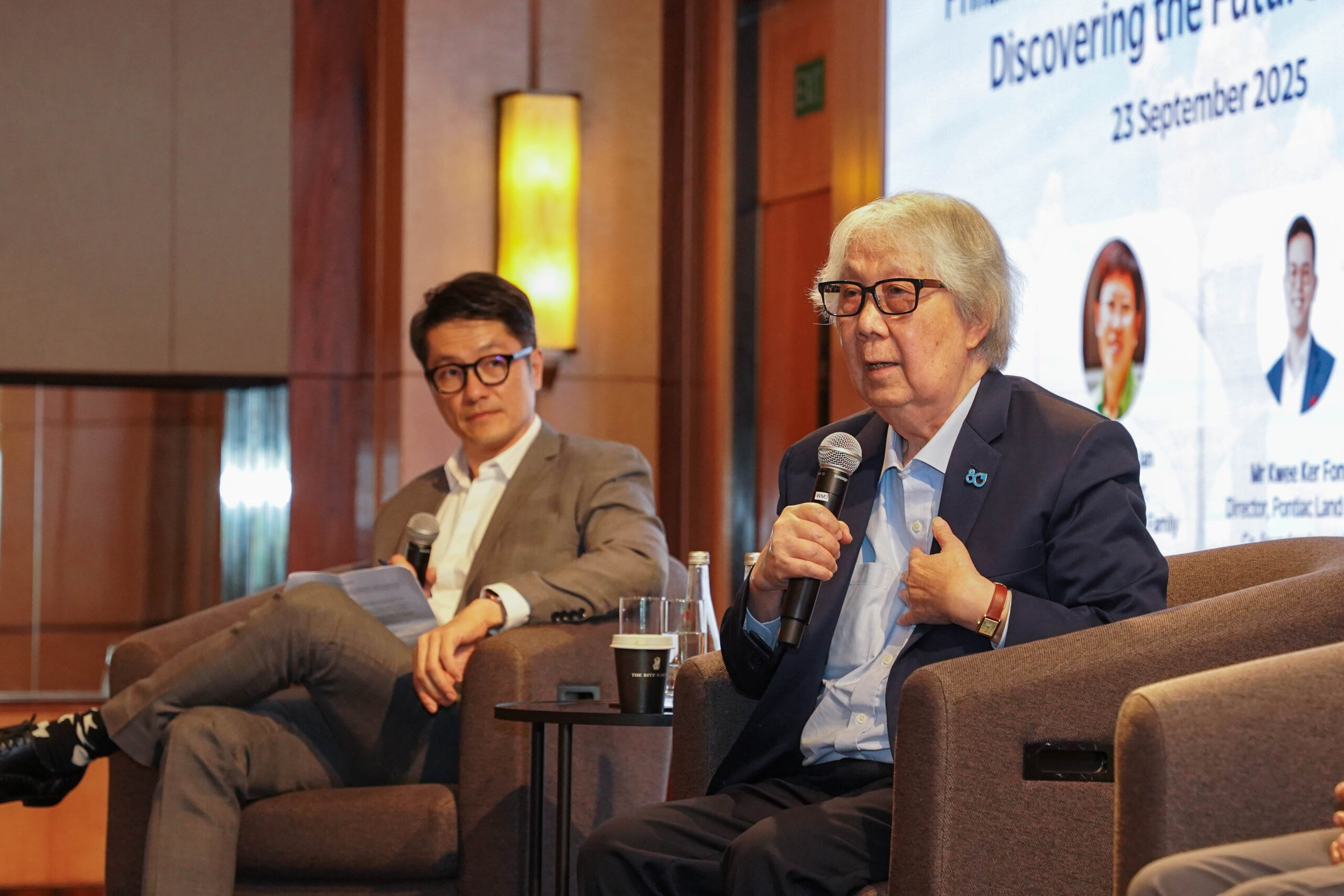Relaxed Fund – helping SAAC clients through horticulture


CFS donor George Jacobs, who created the Relaxed Fund, advocates a vegan lifestyle. Promoting horticulture is his way of championing this, while at the same time helping the clients at the St Andrews Autism Centre (SAAC).
He has funded three Edible Community Gardens (ECG) through the Relaxed Fund: one at SAAC, one at Metta Welfare Association, and one at the Animal Concerns Research & Education Society (ACRES).
The ECG is a unique programme as it involves multiple parties, including the community, and meets both social and environmental needs.
CFS and George visited the ECG at SAAC late last year. The grant from the Relaxed Fund has supported eight planter boxes in two locations at SAAC. The crops grown include: tomatoes, chilli padi, mint, lemon balm, thai basil, rosemary, mosquito plant, xiao bai chai, kang kong, kai lan and brinjal.
The vegetables have been harvested on a quarterly basis while the herbs are harvested as and when there are requests for them. It was also an opportunity for the donor to meet some clients, parents and a community volunteer, and to receive affirmation from them.
“My wife and I wanted to encourage people to eat more plant-based foods, as these foods boost human health and address global warming issues,” said George. “The reason behind the ECG was to give them a sense of vested ownership. If they grow the fruits and vegetables, they may be more likely to eat them. This programme at SAAC also supports the Singaporean government’s 30 by 30 vision, which is to produce 30% of our own food (up from 10% currently) by 2030.
I am very pleased with the great results of the SAAC Community Garden and would like to credit the parents of the clients as well as the community who have all been a supportive part of this amazing effort,” said George.
SAAC currently has about 66 clients altogether. Twenty two of them are on the horticulture programme, although some of the other clients help out on occasions.
Chloe Phua, Senior Coach for Horticulture at SACC, said there have been huge improvements in the clients: “At the start of the programme, they would only do watering and simple weeding, as they used to do for other plants in the premises. Many had tantrums due to the exposure to heat and extreme aversion to dirt. However, the routine of the chores helped them to adjust to the gardening. Now, with very little prompting, the clients are familiar with various stages of the gardening process, from germination through to harvesting. They have also built up their tolerance levels, being able to go through a quarter hour of gardening before washing their hands at a break.”
She added that, overall, the gardening has helped to improve the social skills and capabilities of the clients, who are now able to do gardening together and even go out to the community to deliver their produce.
It was Rosa Quitadamo, a resident of the nearby Villa Marina Condominium, who bridged the gap between SAAC and Villa Marina. Having started her own community garden within the condominium, she had suggested that SAAC sell the produce from their garden to residents in Villa Marina.
Rosa said: ‘’By selling the vegetables they have grown, it gives the clients a sense of value in their gardening. It also raises awareness of autism within the community in a very personal way.’’
Not only that, it instils a sense of pride and responsibility in the clients who work in the ECG. Aloysius has been gardening at SAAC for 18 months, and he is proud to bring vegetables home for his aunt to cook in a soup or for his family to eat with rice.
‘’I enjoy gardening here,’’ he said, with a glowing sense of ownership of his part in the ECG. ‘’I like the watering and the soil preparation,’’ he added, before going on to describe the latter in great detail.
Even the parents of clients who work in the ECG were full of praises for the programme. Aunty Chin and Uncle Joo, parents of client Dwayne Goh, were impressed and amazed by their son’s progress.
Said Aunty Chin, “Dwayne used to be so scared of getting dirty but now, trained by the coaches and regular gardening, he can plant seeds and even do weeding. I have seen a lot of improvement in Dwayne because of the gardening and am thankful for the support from the donor.”
“Many people with autism connect better through their senses. Gardening speaks to them as it involves many senses, like smell and sight. It has even changed my wife’s diet! She actually doesn’t really like vegetables but because Dwayne brings back what he has grown, she will eat them! I prefer to get the vegetables from here because it is fresher and they don’t use pesticides,’’ added Uncle Joo.
CFS donor George Jacobs, who created the Relaxed Fund, advocates a vegan lifestyle. Promoting horticulture is his way of championing this, while at the same time helping the clients at the St Andrews Autism Centre (SAAC).
He has funded three Edible Community Gardens (ECG) through the Relaxed Fund: one at SAAC, one at Metta Welfare Association, and one at the Animal Concerns Research & Education Society (ACRES).
The ECG is a unique programme as it involves multiple parties, including the community, and meets both social and environmental needs.
CFS and George visited the ECG at SAAC late last year. The grant from the Relaxed Fund has supported eight planter boxes in two locations at SAAC. The crops grown include: tomatoes, chilli padi, mint, lemon balm, thai basil, rosemary, mosquito plant, xiao bai chai, kang kong, kai lan and brinjal.
The vegetables have been harvested on a quarterly basis while the herbs are harvested as and when there are requests for them. It was also an opportunity for the donor to meet some clients, parents and a community volunteer, and to receive affirmation from them.
“My wife and I wanted to encourage people to eat more plant-based foods, as these foods boost human health and address global warming issues,” said George. “The reason behind the ECG was to give them a sense of vested ownership. If they grow the fruits and vegetables, they may be more likely to eat them. This programme at SAAC also supports the Singaporean government’s 30 by 30 vision, which is to produce 30% of our own food (up from 10% currently) by 2030.
I am very pleased with the great results of the SAAC Community Garden and would like to credit the parents of the clients as well as the community who have all been a supportive part of this amazing effort,” said George.
SAAC currently has about 66 clients altogether. Twenty two of them are on the horticulture programme, although some of the other clients help out on occasions.
Chloe Phua, Senior Coach for Horticulture at SACC, said there have been huge improvements in the clients: “At the start of the programme, they would only do watering and simple weeding, as they used to do for other plants in the premises. Many had tantrums due to the exposure to heat and extreme aversion to dirt. However, the routine of the chores helped them to adjust to the gardening. Now, with very little prompting, the clients are familiar with various stages of the gardening process, from germination through to harvesting. They have also built up their tolerance levels, being able to go through a quarter hour of gardening before washing their hands at a break.”
She added that, overall, the gardening has helped to improve the social skills and capabilities of the clients, who are now able to do gardening together and even go out to the community to deliver their produce.
It was Rosa Quitadamo, a resident of the nearby Villa Marina Condominium, who bridged the gap between SAAC and Villa Marina. Having started her own community garden within the condominium, she had suggested that SAAC sell the produce from their garden to residents in Villa Marina.
Rosa said: ‘’By selling the vegetables they have grown, it gives the clients a sense of value in their gardening. It also raises awareness of autism within the community in a very personal way.’’
Not only that, it instils a sense of pride and responsibility in the clients who work in the ECG. Aloysius has been gardening at SAAC for 18 months, and he is proud to bring vegetables home for his aunt to cook in a soup or for his family to eat with rice.
‘’I enjoy gardening here,’’ he said, with a glowing sense of ownership of his part in the ECG. ‘’I like the watering and the soil preparation,’’ he added, before going on to describe the latter in great detail.
Even the parents of clients who work in the ECG were full of praises for the programme. Aunty Chin and Uncle Joo, parents of client Dwayne Goh, were impressed and amazed by their son’s progress.
Said Aunty Chin, “Dwayne used to be so scared of getting dirty but now, trained by the coaches and regular gardening, he can plant seeds and even do weeding. I have seen a lot of improvement in Dwayne because of the gardening and am thankful for the support from the donor.”
“Many people with autism connect better through their senses. Gardening speaks to them as it involves many senses, like smell and sight. It has even changed my wife’s diet! She actually doesn’t really like vegetables but because Dwayne brings back what he has grown, she will eat them! I prefer to get the vegetables from here because it is fresher and they don’t use pesticides,’’ added Uncle Joo.
- Related Topics For You: CHARITY STORIES, CLIMATE & ENVIRONMENT, DONOR STORIES, DONOR-ADVISED FUND, ENVIRONMENT, INCLUSIVITY & INTEGRATION, NEWS, PERSONS WITH DISABILITIES, STORIES OF IMPACT


